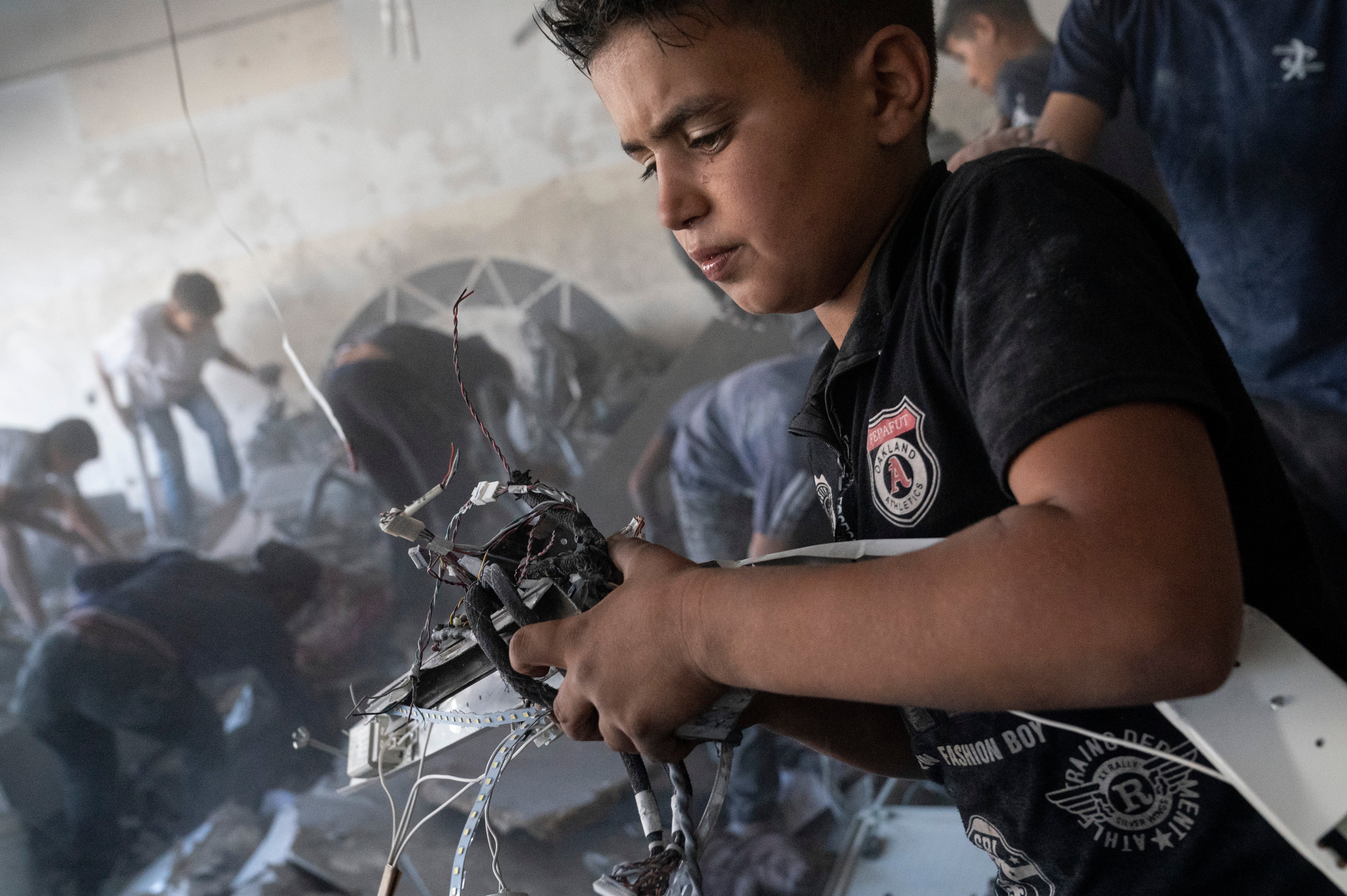The US must get serious with Israel if this conflict is ever to be resolved
There are already numerous Security Council resolutions calling for an end to the Israeli occupation of Palestinian lands. They are not enforced because of the US and its allies, writes Borzou Daragahi


A ceasefire appears to have put an end to the devastating 11-day war between Israel and Hamas and other militant groups in the Gaza Strip. It is still early days, and the calm could collapse, but both sides in the conflict have likely concluded that they have achieved most of their aims, and have little interest in prolonging a battle that has cost scores of civilian lives, overwhelmingly Palestinian, and further damaged the already fragile infrastructure of the volatile, impoverished Gaza Strip.
Upticks in violence between Israelis and Palestinians have become so frequent over the decades as to become almost numbing. Despite the ceasefire, the latest round resolved absolutely none of the issues underlying the conflict – especially the dispute over Jerusalem that triggered it, and the broader context of Israeli occupation and de facto annexation of Palestinian lands.
But the war this time also reverberated worldwide very differently compared to previous conflicts, and at the very least clarified and crystallised the tough truth that the only way out of this globally potent conflict is through international institutions.
Palestinian national identity has strengthened rather than weakened over the years. Whether in East Jerusalem, Israel, the West Bank, in the Gaza Strip or the diaspora, whether supporters of the Islamist militant group Hamas or its western-backed rival Fatah, Palestinians remain unified in a common cause to find a measure of justice for the wrongs inflicted on them over 54 years of occupation and 73 years of displacement and exile.
The Abraham Accords and other agreements signed under US president Donald Trump by Israel and several Arab states were a way to paper over the Israeli-Palestinian conflict. But the Palestinian cause remains a potent one throughout the Middle East and North Africa. Arab regimes found themselves under rare public pressure to act, and many appeared to have second thoughts about warming up to Israel.
Despite often clumsy propaganda efforts by the government of prime minister Benjamin Netanyahu to blame Palestinian intransigence for the ongoing conflict, the Palestinian cause is becoming more widely embraced throughout the rest of the world, including the United States, where it is becoming a divisive issue within the reigning Democratic Party, and among American Jewish communities.
Sympathy and support for the Palestinian cause has waxed rather waned. Once taboo phrases such as “ethnic cleansing” or “apartheid” are being used by western media and policymakers to describe Israeli treatment of Palestinians. The poisonous nature of the conflict spilled out onto streets abroad, with supporters of the Palestinian cause physically attacking and harassing random Jewish people in New York, Los Angeles and London.
No one in Israel has a solution to the crisis and nor do the Palestinians. The domestic political dynamics for both Israel and the Palestinians have become so toxic and dysfunctional that they can barely form legitimate governments, much less muster up the bravery and leadership required to forge a historic peace between two peoples.
Washington also has no solution. It cravenly attempted to ignore the brewing crisis, as settlers pushed Palestinians out of their homes in East Jerusalem and the Israeli armed forces stormed the al-Aqsa Mosque. It then arguably prolonged the Gaza conflict by blocking three anodyne United Nations Security Council statements calling for its end. America’s Middle East policy has become so wound up in pro-Israeli interests that it cannot act as a mediator. The European Union, United Kingdom and Russia also appear to have little leverage to adjudicate.
But there is a way out. There are international mechanisms to deal with this ongoing and potentially explosive crisis. If Israel, Hamas, and other parties to the Israeli-Palestinian conflict are unable or unwilling to adhere to international norms in their conduct of war, they should be investigated and prosecuted. The International Criminal Court has already moved to begin investigating alleged war crimes committed by both Israel and Hamas.
There are already numerous Security Council resolutions calling for an end to the Israeli occupation of Palestinian lands. They are not enforced because of the US and its allies. They pay lip service to the cause of a Palestinian state. But they refuse to allow any enforcement mechanism to take hold. That would mean statements of condemnation of Israeli violations of law, sanctions, and asset freezes on properties connected to illegal settlements. It would mean withholding arms sales to Israel, and refusing to do business with entities that contribute to the occupation.
That could be politically expensive in western capitals, especially in Washington. But it may be the only way to bring some measure of resolution to a conflict that is now into its eighth decade and shows little sign of ending or becoming less destructive.



Join our commenting forum
Join thought-provoking conversations, follow other Independent readers and see their replies
Comments